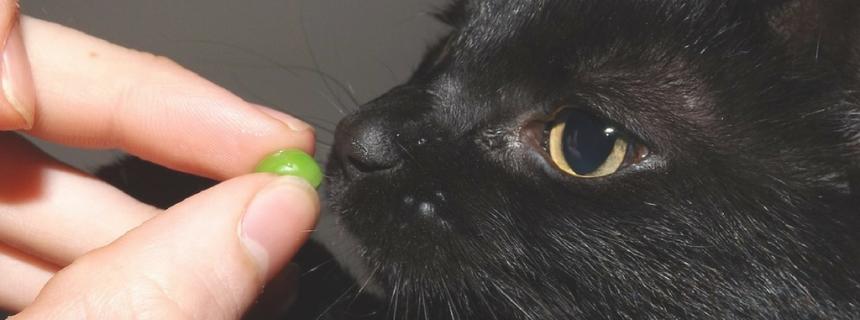Is Year-Round Flea & Tick Prevention Necessary for Cats?
Some years ago, veterinarians recommended cat flea and tick prevention primarily during the summer months unless you lived in a warm climate. The idea was that the sustained cold killed the fleas and ticks.
These days, however, with shifting weather patterns, those fleas & ticks may not die out completely. Besides, if there are any flea pupae (the lifecycle that occurs prior to hatching), already in your home, it probably doesn’t get cold enough to kill them.
Read More
Veterinary Veggies: Should You Add Some Home Cooking to Your Pet’s Diet?
You and your pet both know the rule: No table food! On occasion, however, your vet may actually recommend human fare for your furry friend. What’s the deal?
Vegetables are an excellent source of antioxidants—dietary substances that can repair and prevent damage to the body’s cells—for both humans and animals. While antioxidants in tablet form only contain a handful of different antioxidants, vegetables can contain hundreds, many of which work together for an even more powerful effect.
Read More
Senior Pets: Old Age is Not a Disease!
Have an older pet at home?
Just like humans, pets can develop a number of new health issues as they enter their senior years. Often attributed to simply “slowing down,” it is not uncommon for many of these age-related problems to go untreated or even unnoticed. However, many of these changes can be effectively managed with proper veterinary care.
Common age-related medical issues in pets include:
Read More
How Much Does Dog Dental Care Cost?
You know your dog’s teeth aren’t going to clean themselves and you also know your dog is subject to plaque buildup and periodontal disease just like humans. It’s no secret that professional dog dental cleaning is important. However, one question we’re frequently asked is how much does dog dental care cost? It’s a natural question - after all, we understand healthcare costs are on everyone’s mind these days. Unfortunately, like many health services, it’s difficult to give a single price because “it depends.”
Let’s look at the various factors that contribute to the fees.
Read More
Commercial Rodenticide Emits Gas Toxic to Pets and Humans
Rodenticide, commonly used to kill rats, mice, moles and gophers, comes in many forms and can cause a variety of serious problems in our pets.
Rodenticide containing cholecalciferol (Vitamin D) causes high calcium levels in the blood and can damage the kidneys, central nervous system, heart and intestines. Poisons that contain bromethalin are neurotoxic, causing paralysis and possibly coma, and brodifacoum, warfarin and other anticoagulant rodenticides cause an inability to clot the blood and often lead to internal bleeding.
Read More
DNA Testing Can Unlock Helpful Information About Your Mixed-Breed Dog
Why does my dog love to dig? Why does she try to "herd" the kids when they play outside? Where does he get those ears? These are some questions that owners of mixed breeds may ask themselves. Now, thanks to DNA testing, those answers may be a cheek swab away.
Read More
Keep Pets Happy and Healthy This Halloween
Halloween is supposed to be spooky, but it can be an especially stressful night for the furry little monsters in your house. Follow these tips to keep the holiday fun—not frightening—for your family pets.
Stranger danger!
Visitors (in costume, no less!) are often scary and stressful for pets.
Read More
Laser Pointers: A Good Idea for Your Cat but Not for Your Dog
Most cats love laser pointers. You can press the button and let the red laser land in a pinpoint on the floor, or the wall...just out of reach of your cat, and watch him pounce. It’s entertaining to watch and it’s entertaining for your cat. They’re not so good, however, for your dog. But first, let’s look at how they benefit your kitty.
Read More








